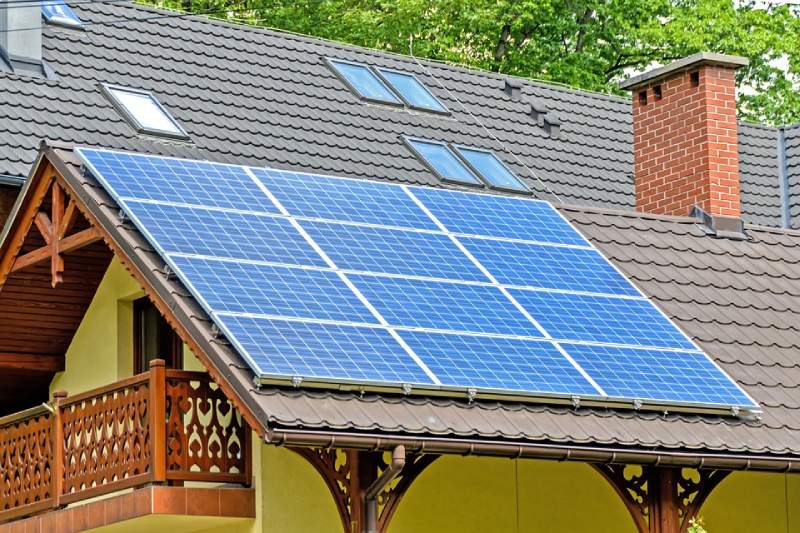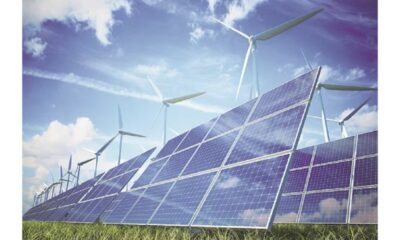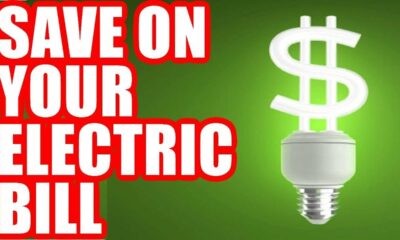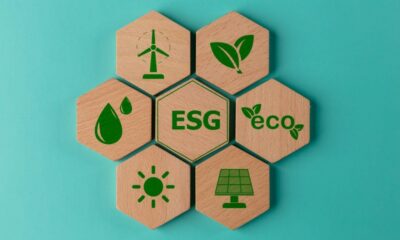Tech
Fun Facts About Solar Energy Use for Homes

Unlock the potential of renewable energy while saving money and earning cash by installing a solar panel system. While solar panel purchase and installation translate to a hefty initial investment, it is designed to generate electricity even on cloudy days. But is solar energy worth making the transition from traditional to clean energy? To answer this question, every homeowner should know interesting facts about solar energy.
You can get paid for the solar energy you export
With the Smart Export Guarantee (SEG) Scheme, energy suppliers with over 150,000 customers offer households in England, Scotland, and Wales a chance to earn from their solar-generated electricity. Depending on your chosen company, you can return 1p to 15p per kWh of unused power generated through your solar panel system. Before committing to any tariff, do your due diligence and get in touch today with a reputable supplier to ensure maximum returns.
The biggest gain comes from using the energy you generate
With estimated cost savings between £190 and £465 per year, installing a solar panel system in your home could greatly reduce electricity bills. Depending on system size, the amount of energy you use and other factors such as whether someone’s usually around during the daytime to make the most of their generated power, residential properties with 3.5 kilowatt-peak systems are in for some seriously impressive annual savings.
The breakeven point of solar panel system investment is 11+ years
Did you know that installing a solar panel system could be the best investment for your home? According to research from Energy Saving Trust, a standard 3.5 kilowatt-peak solar panel system costing around £5,500 can pay off itself in as little as 11 years in ideal conditions. How soon you recoup your investment depends on the amount and timing of your energy utilisation. The prevailing smart export guarantee rates also offer additional savings, making installing solar panels a financially sound investment.
To optimise energy savings, use the most electricity while generating it
Make the most of daylight hours to reduce your energy bill. Gifting excess electricity generated back to the grid may not be a great idea, but you could save money by shifting as much usage during the daytime. This is because energy use during the day is cheaper than evening and night-time tariffs, so ensure those appliances run at peak efficiency when the sun shines for optimum savings potential.
Not all homes can accommodate solar panel systems
Switching to solar power is becoming increasingly popular, but not all homes are naturally suited. To get maximum benefits from your panels and maximise savings over time, you’ll want to ensure that a few key boxes have been ticked off, such as having a predominantly south-facing roof with enough space for installation.
Conclusion
If you are considering installing solar panels, finding a registered installer and getting multiple quotes are important. A registered installer will ensure that your panels are installed professionally and safely. Getting multiple quotes will allow you to compare prices and ensure that you are getting a fair deal. Remember that the cheapest quote may not always be the best option. Be sure to ask questions and research to find a reputable installer.
-

 Gadget4 weeks ago
Gadget4 weeks agoAfter Grand Success on BLDC Ceiling Fan, Eff4 Is Launching Smart Bulb
-

 Festivals & Events4 weeks ago
Festivals & Events4 weeks agoGoogle Celebrates Cherry Blossom Season with Animated Doodle
-

 Business2 weeks ago
Business2 weeks agoPrakash and Kamal Hinduja: Driving Social and Environmental Change
-
Education3 weeks ago
Fred DuVal: University Leadership as a Critical Resource for Climate Change Research and Life-Saving Solutions
-

 Health2 weeks ago
Health2 weeks agoThe Hinduja Brothers Commitment to Global Health: Empowering Communities Across Borders
-

 Cryptocurrency3 weeks ago
Cryptocurrency3 weeks agoDesigned For The Masses: How Akasha (AK1111) Is Unlocking Crypto For The Next Billion Users
-

 Cryptocurrency3 weeks ago
Cryptocurrency3 weeks agoNexaglobal & Future World Token (FWT): Could This Be the Next Big Crypto Investment of 2025?
-

 Sports4 weeks ago
Sports4 weeks agoWomen’s NCAA Tournament 2025 Sweet 16: Full Schedule, Fixtures, Teams, Bracket, and How to Watch March Madness Basketball Match Live























